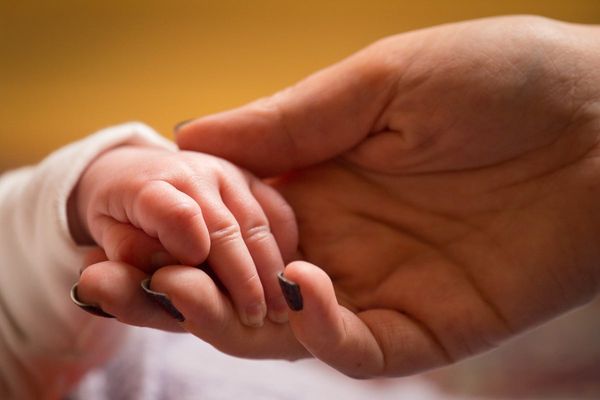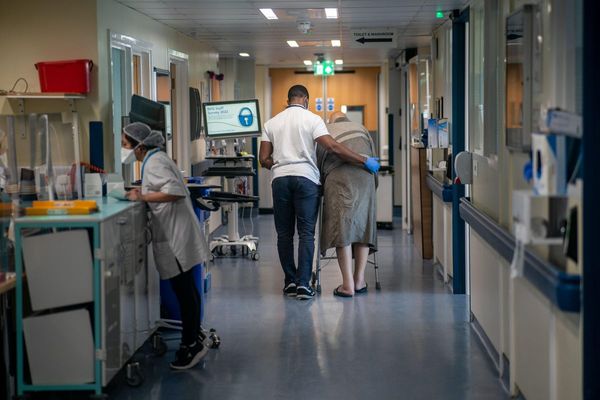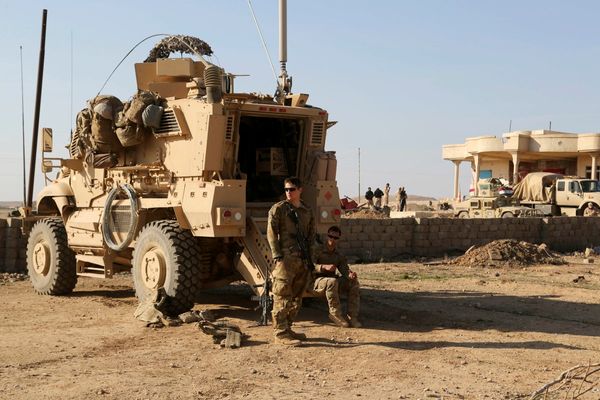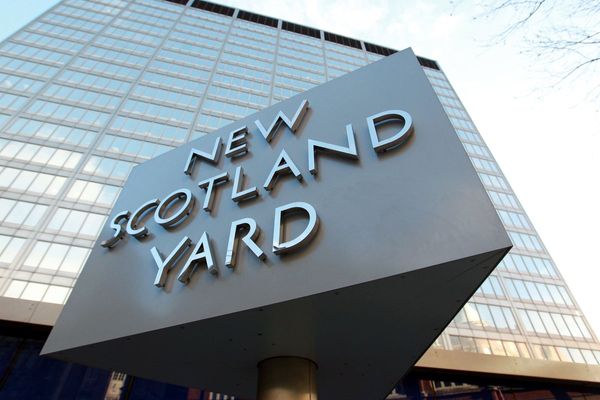
The lawyer representing the Australian Federal Police (AFP) at the Sofronoff inquiry has lashed the ACT chief prosecutor Shane Drumgold SC for improperly raising an allegation of political conspiracy on the part of AFP Commissioner Reece Kershaw.
Under questioning by Kate Richardson SC at Friday’s hearing, it was put to Drumgold that he had told the inquiry on the Wednesday that it was “possible, if not probable” pressure had been brought to bear on Kershaw by an unnamed former Morrison government minister to pervert the course of justice and ensure the rape allegation against Bruce Lehrmann in 2021 not proceed to trial.
Drumgold resisted that characterisation of his evidence, telling the inquiry he was merely responding to a question from counsel assisting with respect to the factors that compelled him to call for a public inquiry into the handling of the Lehrmann matter.
“I wasn’t making an allegation,” he said. “I was saying that, to my mind [as of November 2022 that it] was a possibility.”
On the Thursday, Drumgold had informed the inquiry that having since had the benefit of reading a number of police witness statements tendered to the inquiry, he was in all likelihood mistaken about political interference on the part of investigating police.
When Richardson put it to Drumgold on Friday that this concession extended to his suspicions about the conduct of Kershaw, Drumgold’s lawyer Mark Tedeschi KC objected, pointing out the scope of the concession was (as Crikey pointed out) expressly confined to investigating officers — a point accepted by the inquiry’s chair, Walter Sofronoff KC.
It then emerged that Drumgold could not recall whether or not he’d in fact read Kershaw’s written statement.
Richardson put it to Drumgold that, as “a senior counsel holding a very high office in the ACT”, it was improper and ran contrary to his obligations as a lawyer to voice such a serious allegation “on oath” without knowing whether it was soundly based.
“Why didn’t you say to your lawyers, ‘I have a suspicion about a conspiracy involving commissioner Kershaw [and] I need to read [Kershaw’s] statement,’ ” asked Richardson. “Is it not something you would do as a lawyer?”
Drumgold replied he did not believe it was his “place to call” on the inquiry to provide him with Kershaw’s statement. He also reiterated that he wasn’t making an allegation but merely referring to his previous “state of mind that [the conspiracy] was a possibility”.
This prompted Sofronoff to interject: “You can think whatever you like. But to say as director of public prosecutions in public that that was a possibility — and not even a possibility but a probability — that’s a pretty brave thing to assert in public.
“Don’t you think that to state publicly that you hold that suspicion is an extremely grave matter because people would rightly take very seriously what you say?”
Drumgold replied: “Again, that was not the intention of what I was saying.”
It was put to Drumgold that one possibility the inquiry had not provided him with Kershaw’s statement before hearings commenced owed precisely to the fact that he’d never expressly raised the allegation against Kershaw before Wednesday.
Drumgold deflected in response, suggesting the possibility of a conspiracy was embraced in the terms of his extraordinary November 2022 letter to ACT chief police officer Neil Gaughan.
“I think that would fall within the realm of ‘political conduct’,” he said. “The envelope of potential political conduct [contained in the letter] encompasses that.”
As Richardson’s cross-examination progressed, however, Drumgold unconditionally withdrew his suggestion of a possible conspiracy involving Kershaw and a former government minister. He also accepted that it was wrong for him to have waited until the week’s end to inform the inquiry and, by extension, the public, that he no longer held suspicions of a political conspiracy.
“You were examined for three days by [counsel assisting] about your state of belief that prompted you to write the letter and you say that because of the constraints of the questions you weren’t in a position ever to say that since writing the letter […] you had changed your mind?” Sofronoff asked.
“I accept that. I should have injected the addendum,” Drumgold replied.
Drumgold did not, however, concede that it should have been “obvious to him” that his failure to qualify his evidence in this way had left the media with the false impression about the state of his evidence.
“It was clearly not obvious to me,” he said.
Richardson asked: “Is that really your evidence? Is it really your evidence that it’s not obvious [that] to raise a possible if not probable conspiracy involving a minister of the Crown, seeking to pervert the course of justice with the commissioner of police, that that would not be widely reported?” She added it was “extremely damaging” to the reputations of persons involved.
“And as I’ve said,” Drumgold replied, “I was not, to my mind, making a grave allegation.”
On Thursday evening, Brittany Higgins’ former employer Senator Linda Reynolds called Drumgold’s “baseless suggestion” of a political conspiracy “a complete affront to [her] reputation”.
“It is baffling and it is disturbing that this view was offered under oath as there was absolutely no basis for this claim,” she said.
The inquiry, which is examining the conduct of public officials in the investigation and prosecution of Lehrmann, will call Lehrmann’s defence counsel Steven Whybrow SC as the second witness on Monday.
Lehrmann, for his part, has always maintained his innocence.







